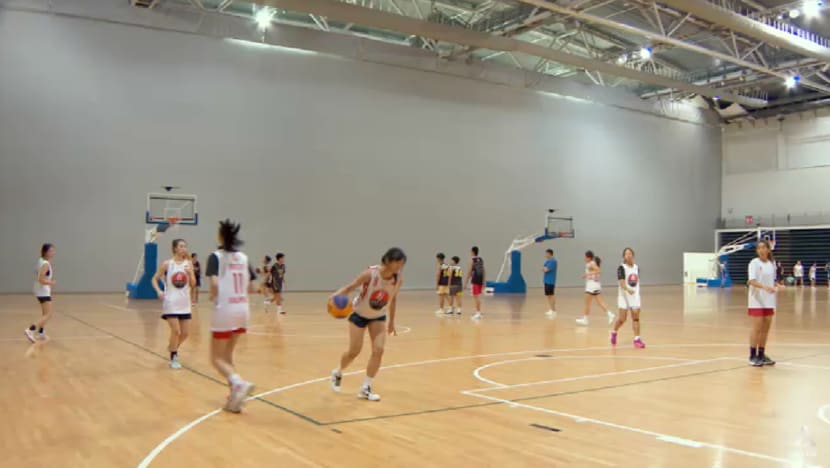Singapore’s national athletes experience high levels of poor mental health: Study
Observers said many athletes may not realise that they are experiencing mental health challenges.

A recent study has found that Singapore’s national athletes experience high levels of poor mental health — comparable to both the general population and their Western counterparts.

This audio is generated by an AI tool.
SINGAPORE: A recent study has found that Singapore’s national athletes experience high levels of poor mental health — comparable to both the general population and their Western counterparts.
A total of 356 athletes across various sports took part in the study, published in the Singapore Medical Journal on Tuesday (Aug 5).
The findings challenge the belief that participation in sports builds resilience, said observers.
ATHLETES AT RISK
According to the study, nearly 70 per cent of athletes reported elevated levels of athlete-specific psychological strain.
Around 41 per cent experienced clinically significant depressive symptoms, while about 18 per cent reported moderate to severe anxiety.
In addition, 16 per cent of participants were suspected to have disordered eating — a range of irregular eating behaviours that could include a specific eating disorder.
The study also noted that many athletes with significant symptoms say they had never required treatment, which suggests possible barriers to seeking or accessing support.
Female athletes in Singapore were also found to be more likely than their male counterparts to experience clinically significant depressive symptoms — a trend consistent with findings from Western studies.
However, one possible explanation cited is that male athletes may simply underreport their symptoms.
The study recommended integrating mental health screening into the pre-participation process to better identify athletes at risk.
PERFORMANCE ANXIETY
Observers emphasised that raising awareness, providing education and implementing resilience programmes are crucial.
“Within the sport psychology team, we run workshops, we do individual consults,” said Dr Harry Lim, a senior sports psychologist from Sport Singapore.
“So, for instance, (we are) running mental health literacy workshops for athletes (and also) coaches. Because they are an important part of this environment, and they can also do their part to help support our athletes.”
Both experts and athletes identified performance anxiety — driven by internal and external pressures — as the most common psychological challenge.
Even for some of Singapore’s most successful athletes, the weight of expectations can be overwhelming — at times leading to sleepless nights.
Former national swimmer Tao Li said that while athletes may put in a great deal of effort, they might not perform at their best on the day of competition.
Yet some people tend to take that single moment and blow it out of proportion, she added.
“That kind of pressure, if you're not able to withstand it, you might fall into severe depression,” she said.
Singapore pistol shooter Teh Xiu Hong narrowly missed out on the finals at the Paris Olympics last year by just two points.
She struggled to focus afterwards, but having the right mental support made all the difference.
“Having a support group is really very important, because that is really what got me through the dark times for the most part of 2024,” she said.
“If not for them, I don't think I'll be able to recover so fast.”
Teh said it was important to have another perspective, as athletes can often get stuck in a single mindset which can become very negative. She shared that talking to others helped her shift that perspective.
“We will always want to perform at major competitions, so that’s definitely one of the biggest stressors,” said Teh.
“The thing is we do not have full control of the results. Sometimes we can do our best but our best may not be enough.”
PERFECTIONISM
Dr Joshua Li, a consultant with Changi General Hospital’s Department of Sport & Exercise Medicine, said many athletes may not realise that what they are experiencing is actually a mental health challenge.
“Maybe because they are young, they are inexperienced, or just sometimes the symptoms are quite overwhelming,” he added. “Also, they just may not know how to seek help.”
Dr Lim said Singapore is unique because it has many athletes who are either studying and pursuing sport, or working and pursuing sport at the same time.
"With those demands, naturally, there'll be more strain and more stress, because you're having to manage two different priorities at the same time, as opposed to somebody who is a full-time athlete who maybe just needs to focus on their athletic career," he said.
Sports psychologist Jay-Lee Nair said she has also observed that athletes are becoming competitive at a younger age, and many younger ones may require support.
“It’s definitely something that we need to put a spotlight on if we are going to allow our wonderful children to start to not just enjoy their sport, but also thrive in their sport,” she said, adding that parents have approached her with concerns about performance anxiety.
“While they have all the automaticity in their physical skills, their technique is matching the demands of competition, they don't have the mental tools and the cognitive awareness that really is needed to match the demands of the competition,” said Dr Nair.
“This is a new generation we're dealing with that has very specific dilemmas and challenges, and perfectionism is one of them. And I do think there needs to be a lot more education around what perfectionism looks like in our young in this new generation.”



















